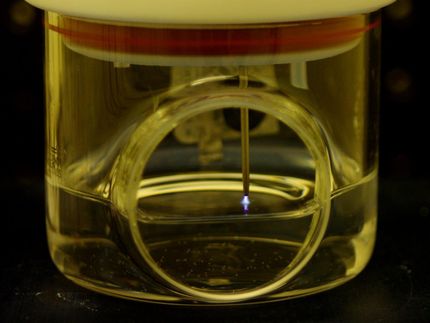Cornell ecologist's study finds that producing ethanol and biodiesel from corn and other crops is not worth the energy
Advertisement
Turning plants such as corn, soybeans and sunflowers into fuel uses much more energy than the resulting ethanol or biodiesel generates, according to a new Cornell University and University of California-Berkeley study.
"There is just no energy benefit to using plant biomass for liquid fuel," says David Pimentel, professor of ecology and agriculture at Cornell. "These strategies are not sustainable."
Pimentel and Tad W. Patzek, professor of civil and environmental engineering at Berkeley, conducted a detailed analysis of the energy input-yield ratios of producing ethanol from corn, switch grass and wood biomass as well as for producing biodiesel from soybean and sunflower plants.
In terms of energy output compared with energy input for ethanol production, the study found that corn requires 29 percent more fossil energy than the fuel produced, switch grass requires 45 percent more fossil energy than the fuel produced, and wood biomass requires 57 percent more fossil energy than the fuel produced. In terms of energy output compared with the energy input for biodiesel production, the study found that soybean plants requires 27 percent more fossil energy than the fuel produced, and sunflower plants requires 118 percent more fossil energy than the fuel produced.
In assessing inputs, the researchers considered such factors as the energy used in producing the crop (including production of pesticides and fertilizer, running farm machinery and irrigating, grinding and transporting the crop) and in fermenting/distilling the ethanol from the water mix. Although additional costs are incurred, such as federal and state subsidies that are passed on to consumers and the costs associated with environmental pollution or degradation, these figures were not included in the analysis.
Original publication: Natural Resources Research 2005, Vol. 14:1, 65-76.
Organizations
Other news from the department science

Get the chemical industry in your inbox
By submitting this form you agree that LUMITOS AG will send you the newsletter(s) selected above by email. Your data will not be passed on to third parties. Your data will be stored and processed in accordance with our data protection regulations. LUMITOS may contact you by email for the purpose of advertising or market and opinion surveys. You can revoke your consent at any time without giving reasons to LUMITOS AG, Ernst-Augustin-Str. 2, 12489 Berlin, Germany or by e-mail at revoke@lumitos.com with effect for the future. In addition, each email contains a link to unsubscribe from the corresponding newsletter.





























































